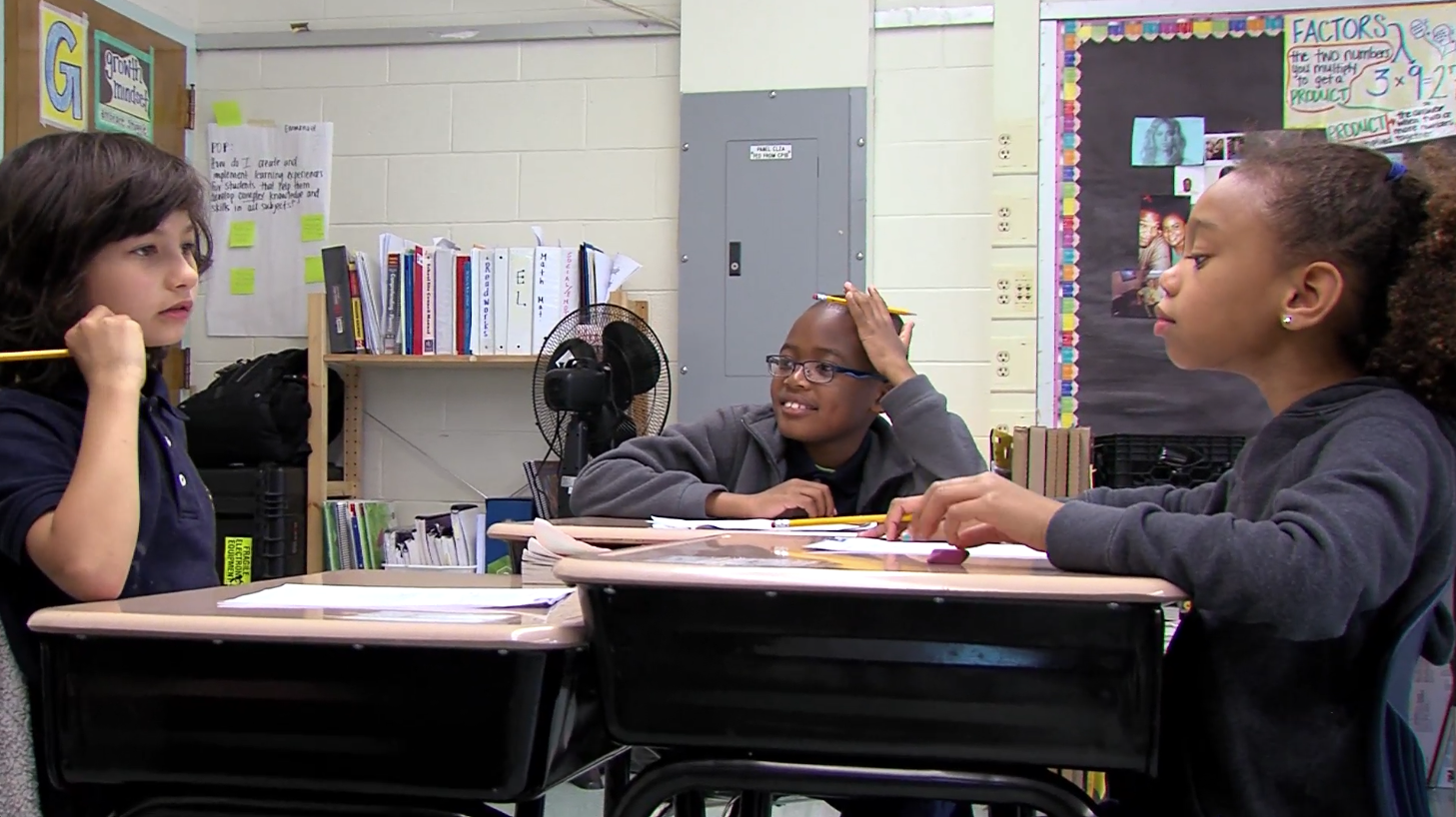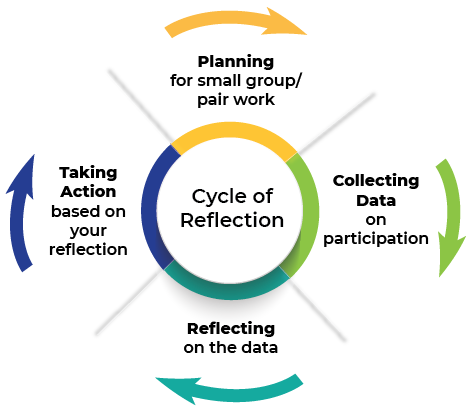A Tool to Support Equitable Participation in Small Group and Pair Work
By Cinthia Colón
April 1, 2024
“I wanted to see that all students were stepping up. I wanted to see that all students were included. I wanted to hear the questions that they asked each other. And boy, did I get a ton of information.”
— Grade 5 Teacher

The Framework for Reflecting About Equity in Mathematics Classroom defines equitable mathematics learning communities as spaces where “students are encouraged to work together to solve problems, to learn from each other, to take risks, to support and encourage others, and to be supported and encouraged by others in their growth as mathematics learners. …This is true whether they are working alone, with a partner, in a small group, or as part of a whole class discussion.” (Russell et al., 2023, p. 5)
In a previous blog, A Teacher Reflection Tool to Support Equitable Participation in Whole Class Discussions, teachers were introduced to an evidence-based cycle of reflection designed to support equitable participation during discussions. Discussions are one essential structure in elementary students’ mathematical learning. Another is small group and pair work, which offer students opportunities to solve problems collaboratively, share ideas, and learn from each other. Small group and pair activities also allow teachers to deliver tailored instruction, by adapting the work for a diverse range of learners.
We knew that “understanding what it means to ‘be a good partner,’ and how to make space for each person’s ideas, are important aspects of an equitable learning community.” (Murray and Economopoulos, 2024) But how to ensure that all students are positioned and seen as thinkers and doers of math during partner work? Our team considered the following questions:
- How do we ensure equitable participation in small group and pair work?
- How do we pair or group students in ways that best support learning and then help pairs and small groups work together equitably?
- What does it look like, sound like, and feel like to work in a small group where all voices are heard and valued?
- How do we empower students to advocate for themselves when adults aren’t facilitating the discussion?
In order to address some of these questions, our team recognized that it was important to capture what happens within pairs and small groups. However, unlike whole group discussions, a teacher cannot observe and monitor most of the interactions that happen in pairs or small groups. This led our team to collaborate with a group of educators to develop, try out, and refine a Teacher Reflection Tool for Small Group or Pair Work which is designed to support teachers in considering how students are grouped, how students are participating in those groups, and how they are interacting with each other to promote equitable participation.
The Teacher Reflection Tool engages teachers in a cycle of 4 steps:

- Planning: Teachers intentionally think through how to group/pair students to encourage equitable participation and move students’ understanding forward.
- Collecting Data: Teachers gather data on how students are participating or interacting with one another as they engage with a small group or partner.
- Reflecting: Teachers examine what is happening during small group and partner work and analyze participation patterns across various student demographics.
- Taking Action: Teachers brainstorm ways to incorporate their learnings into their teaching practice. By selecting one or two ideas to implement and then collecting data again, teachers can assess the impact of their actions, creating a continuous cycle of reflection.
These last two steps are at the heart of developing and maintaining an equitable math learning community.
“[It] was really helpful to get a more accurate sense of how my partnerships were working and whether they were effective.”
— Grade 5 Teacher
Utilizing the tool gives teachers information about individual student engagement and interaction dynamics that can impact how students participate during partner work. The tool provides a window into the students’ world, providing teachers with a deeper understanding of their strengths, needs, and challenges as they work together to ensure all voices and ideas are considered equitably.
References
Hollister, Arusha. (2023, December). A Teacher Reflection Tool to Support Equitable Participation in Whole Class Discussions. Forum for Equity in Elementary Mathematics.
The Math Equity Forum at TERC. (2024, April). Teacher Reflection Tool: Equitable Participation in Small Group and Pairs. Forum for Equity in Elementary Mathematics.
Murray, Megan and Economopoulos. (2024, March). Partner Work: A Structure that Supports Equity in the Elementary Mathematics Classroom. Forum for Equity in Elementary Mathematics.
Russell, S.J. et al. (2023, September). A Framework for Reflecting about Equity in the Elementary Mathematics Classroom. Forum for Equity in Elementary Mathematics.

Search for related blog posts
